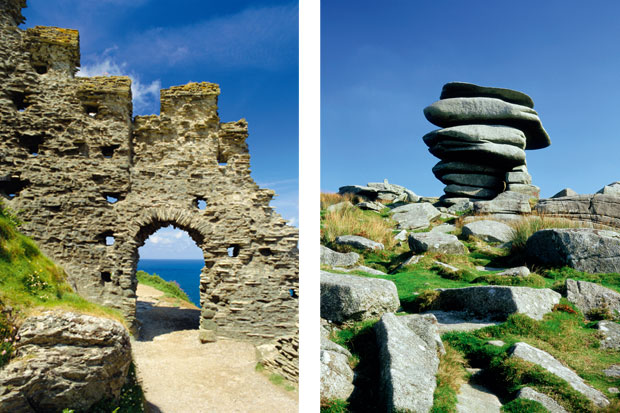Philip Marsden’s book is about place. He makes a distinction between place and space. In his mind ‘place’ is something resonant, evoking a connection with the land and its meaning.
Marsden is obsessed with pre-history and the beliefs and practices of the earliest inhabitants of Cornwall. He cites with approval someone’s judgment that written history is a palimpsest and he is demonstrably eager to see what was written over. Although his area of special interest is Cornwall, he describes expeditions to other European countries in search of a kind of kinship of belief and practice among them. His book is also a personal account of renovating an old but enchanting house on the Fal, interspersed with descriptions of his journeys across Cornwall, mostly on foot, to get close to the impenetrable secrets of pre-history. What were the standing stones for, what was the point of stone circles, why were the dead buried in caves, were mountains uniformly numinous?
With his wide knowledge of the many theories — some intuitive, some bonkers — about what the people who lived here actually believed, he is well equipped to make connections:
For 2,000 years, and probably longer, the banks of the Upper Fal were a-bustle with activity. Punts and barges criss-crossed the river, netters and mussel gatherers worked its foreshore, fullers dipped fleeces in the creeks, lime-burners stoked riverside kilns. Larger trading ships were rowed up to Tregony to land wares from the continent and the Mediterranean, and fill their holds with wood or streamed ore. Ptolemy may have been referring to Tregony when he included ‘Voluba’ in a list of ports.
Or perhaps he may not have been referring to Tregony; in the peering-back-into-antiquity business, there are no certainties.
But Marsden, well aware that the theories of a few centuries of amateur sleuthing have mostly arisen more from the inclinations of the sleuth rather than from any serious evidence, pulls off a remarkable feat.








Comments
Join the debate for just £1 a month
Be part of the conversation with other Spectator readers by getting your first three months for £3.
UNLOCK ACCESS Just £1 a monthAlready a subscriber? Log in